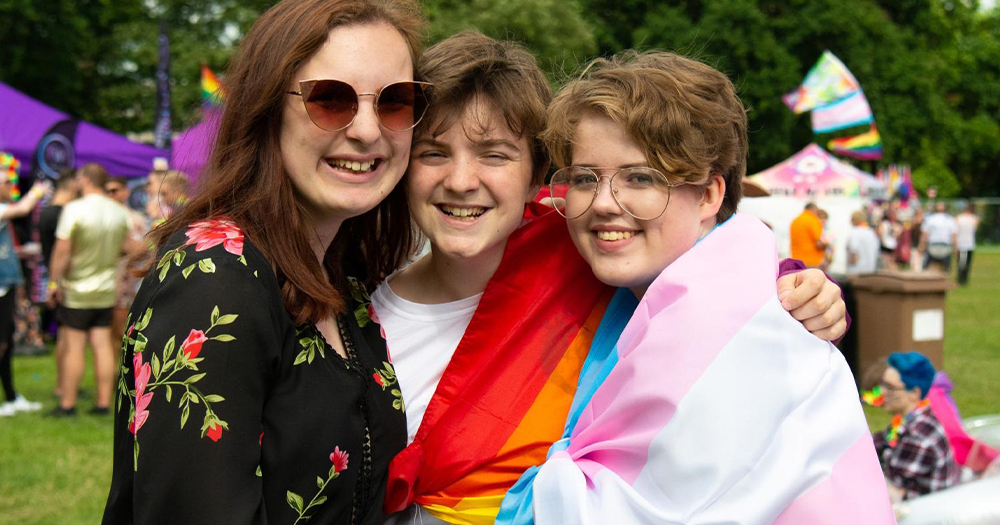Today is International Pronouns Day – a commemoration and celebration seeking to make respecting, sharing and educating about personal pronouns commonplace. Being referred to by the wrong pronoun has a detrimental affect on people, particularly trans and gender nonconforming people, so awareness of correct pronouns is extremely important.
Pronouns are another way of referring to someone other than their name. Commonly used pronouns are “she/her” or “he/him” to refer to people in the third person, but some people will use other pronouns such as “they/them” and “ze/zir” .
As BeLonG To – the organisation to support LGBTQ+ youth – shared; “If you are unsure of a person’s pronouns, it’s OK to ask them and share what your pronouns are in return. And if you mistakenly use the wrong pronouns for someone, simply apologise, correct yourself and commit to be more mindful of how you refer to people in the future.”
To celebrate International Pronouns Day, BeLonG To have released two new resources:
Coming Out As Trans, which contains useful information, tips and advice for trans young people and for those who are exploring their gender identity or gender expression.
Supporting Families in Transition a guide to help you support someone you love who is trans.
In a recent interview with Lovin Dublin, Moninne Griffith, CEO of BeLonG To, spoke about the situation for young trans people returning to school. Griffith explained, “So young people coming to school this year, who may have been in school as a boy last year. They’ve come to school as a girl this year, and I’ve been hearing some really positive stories about the support that that young person has received from teachers and staff and other students in the class.
“I’d say that is not universal, that experience, but it is really wonderful to be hearing those stories trickle in from teachers and from parents, and indeed from young people themselves; that there is a shift by many schools to be way more practical and pragmatic and inclusive and welcoming of trans students.”
Further in the interview, Griffith continued, “The good news story for us is that we have a lot more people young people reaching out for support, because they’re at home more, and online more, searching for LGBT or gay or trans or lesbian or whatever, up pops BeLonG To, and they are given contact details for us.”
“So that is happening nationally, and it is good to hear that.”
If you are affected by any of the issues mentioned and would like to contact BeLonG To, they can be reached here.
© 2020 GCN (Gay Community News). All rights reserved.
Support GCN
GCN is a free, vital resource for Ireland’s LGBTQ+ community since 1988.
GCN is a trading name of National LGBT Federation CLG, a registered charity - Charity Number: 20034580.
GCN relies on the generous support of the community and allies to sustain the crucial work that we do. Producing GCN is costly, and, in an industry which has been hugely impacted by rising costs, we need your support to help sustain and grow this vital resource.
Supporting GCN for as little as €1.99 per month will help us continue our work as Ireland’s free, independent LGBTQ+ media.
